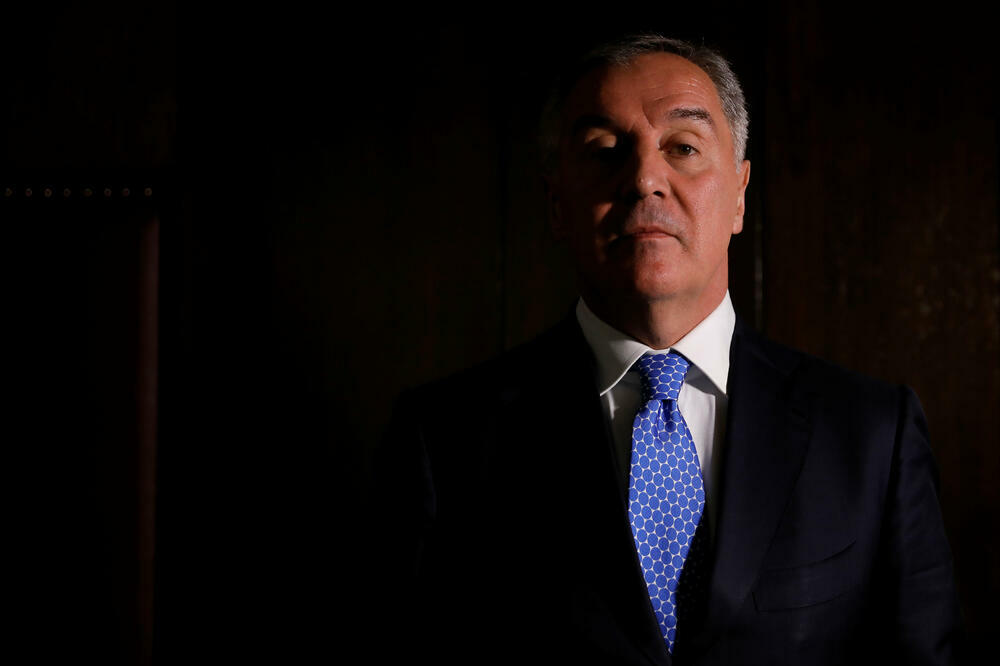Almost there, an acquaintance, in a slightly depressing tone, said that there is no "help for Montenegro as long as Milo is free".
He is not the only one who sees the way out of Montenegrin's current problems in the imprisonment of Đukanović. Inversely proportional to the obvious impotence or at least the slowness of the criminal justice apparatus in punishing Milo's "red barons", and even Đukanović himself, there are more and more members of the post-August 30th elite who think in a similar way.
The reality, however, is significantly different. Almost four years since the defeat of DPS and one year since the election of Milatović, Milo Đukanović is still one of the most influential figures in Montenegro.
What is this attitude based on?
Đukanović, first of all, controls the party for which at least a quarter of adult Montenegrins vote. His influence in the economic sphere is probably even greater. It is Milo's pullets, those whom he enabled to earn that famous first million, that create at least a third, if not more, of Montenegrin GDP. The police, prosecutor's offices and especially the courts, in fact the entire legal and security system, it is already clear from the Sky correspondence, are still made up of many people who are connected in one way or another with the previous system, regardless of whether it is illegal arrests , dubious judgments or donated apartments. Even when we talk about the criminal sphere, that layer of people who control the underworld, there is almost no one who, with the "help" of the state headed by Milo, earned or still earns a huge fortune.
The only two areas where Đukanović's influence is almost non-existent are the church and the media. That actually cost the authorities Milo and DPS.
Much is known about the relationship between Đukanović and the late Metropolitan Amfilohi, and even more is speculated, but almost everyone agrees that the stability of Montenegro during most of Đukanović's reign was the result of their mutual relations. Time will tell who or what influenced Milo to throw the glove in Amfilohi's face, but what is indisputable is that Đukanović's example proved the accuracy of the sentence cuius ecclesia, eius regio - whose church is his state.
Litijas did not directly overthrow the government, but they broke through the membrane of fear on which all autocratic regimes rest for a large part. Amfilohije showed something else very important, which for three decades did not reach the consciousness of the average citizen of Montenegro, and that is that the belief that Milo cannot be defeated is a myth.
As for the media, for a politician of Đukanović's profile and intelligence, it is strange that he did not realize that in Montenegro, in the second decade of the 21st century, the information system no longer rests exclusively on fiddles and oral tradition.
He failed or lacked the foresight to create an influential media or even an entire network to rival his opponents. Vučiċ, whom many consider Milo's counterpart in Serbia, does not allow himself such luxury. The entire empire, led by Pink, tabloids, local media and the established Public Service, covers Vučić's target group of voters. It is true, there are, first of all, media owned by United media whose influence is not negligible, but Vučić does not allow them to even look into the backyard of SNS voters. And even when there is a danger of running into his ban, he solves it in his own way.
Let's remember, when Kurir was once up for sale, there was a real danger that this influential tabloid would fall into the hands of a Western concern. Aca Rodić, the owner of Kurir, received an offer that he could not refuse. The ladder was raised from 10 million euros to an incredible 25 and Kurir remained, through a certain Igor Žeželj and Telekom, under Vučić's control.
Why am I highlighting this particular example? Simply, this tabloid penetrated the soft underbelly of Vučić's government. The readership of Kurir was made up predominantly of Vučić's voters, and the President of Serbia did not want to leave that part of the Serbian population to someone else. I would not like to guess what would have happened if Milo had "opened up" when Vijesti was for sale, but I would say that it is not a question of lack of money. Rather, it will be that Đukanović did not understand the importance and influence that Vijesti will have in key moments when the fate of DPS and its political future will be decided.
Regardless of these "failures", the era of Milo Đukanović is still going on and the first reliable sign that Milo has "fallen", but really, will be the appearance of the first protected witness from his environment who will transfer part of the blame directly to Đukanović if he is not saved from a long stay between the ramparts.
Despite many expectations, his decades-long friends, those who know a lot about Đukanović's decisions and affairs, such as Medenica, Petar Ivanović or Aco Mijajlović, are aware that they have walked a two-way street and that Milo knows much more about their tricks and criminal activities than they can. to testify about his.
According to Đukanović, the real danger is the "second echelon". This includes those who were high enough in the state and party hierarchy to learn about or directly participate in certain dubious operations, but believe that they were either not adequately rewarded for their loyalty or that what they have to give up is more than what Milo gave them.
And lastly, but not least, the opposition or at least the reservations of the so-called "international community" according to the eventual arrest of Đukanović. No, of course, because there is no evidence or it could not be found. That is important, but it was never decisive in the West's attitude towards the former rulers of regimes similar to Đukanović's. They are solely concerned with what the consequences of such an act would be for the "stability" of that country, whatever that means.
At this moment, however, according to those estimates, there is neither the need nor the conditions for Đukanović's imprisonment.
For the international community, in the current deployment of forces, the war in Ukraine and the increased geostrategic importance of Montenegro, Đukanović represents a "factor of peace and stability". His possible arrest and possible consequences for internal political (dis)opportunities in Montenegro are not a luxury the West can afford.
The opposite example of the same school of thought is Slobodan Milošević. Although he retired from political positions, the survival of the new authorities depended, in a politically turbulent situation, on Milošević's arrest and subsequent delivery to the Hague Tribunal. Slobodan's supporters, both inside and outside the country, only then actually accepted the fact that October 5 was the definitive end of Milosevic's rule and the beginning of a new era in the history of Serbia.
Đukanović is not in that position, and as long as he adheres to the "rules of the game" regarding his arrest, neither my acquaintance from the beginning of the text nor his like-minded people can hope. Unfortunately for them, Montenegro will have to "demolish" Đukanović again, this time, by building institutions and introducing the rule of law into all those pores of society that have been clogged by Depees' three-decade rule.
And, when and if that happens, no one will be protected, not even Milo Đukanović.
Bonus video:





